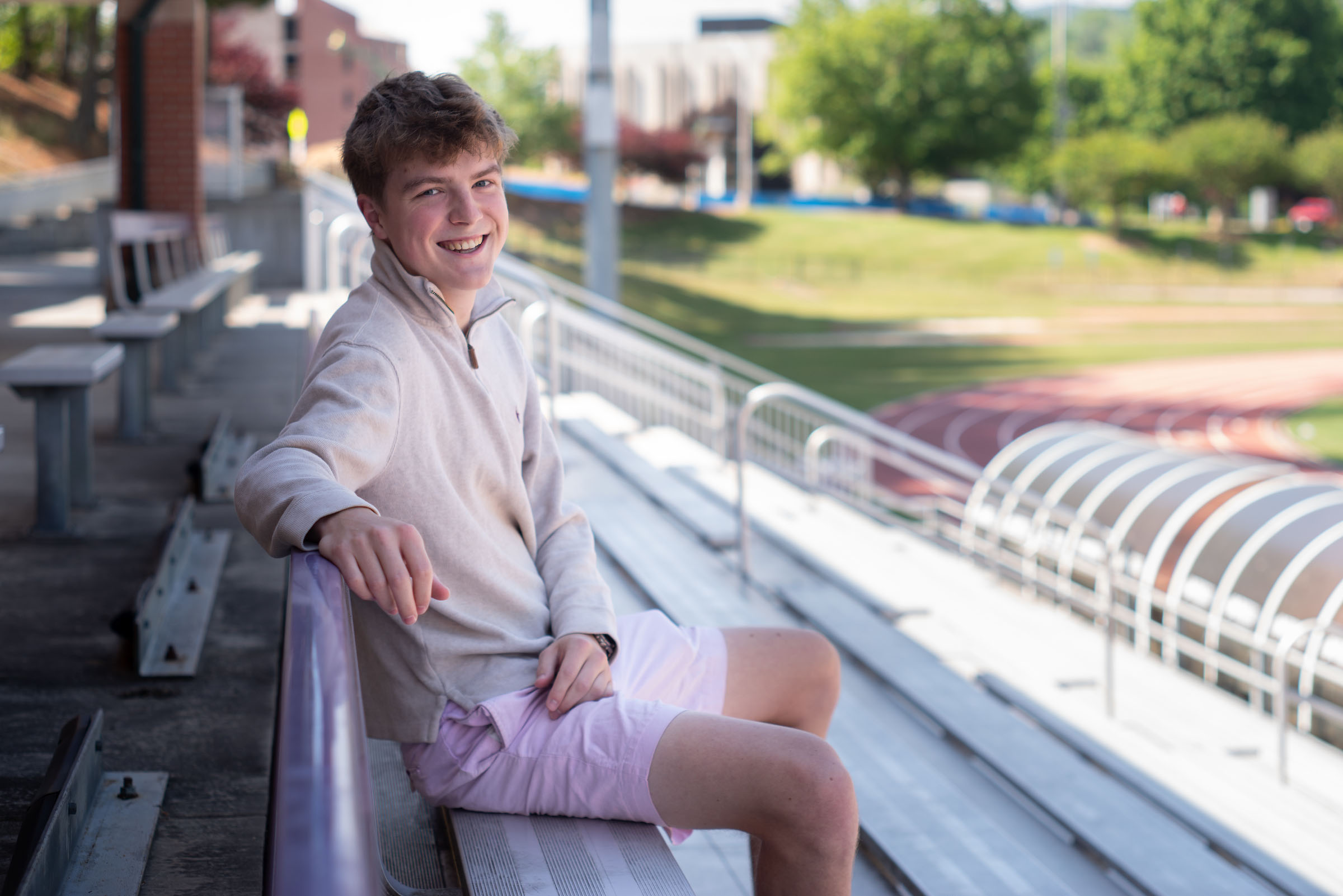Clegg combines love for WCU, military as head of new affinity society
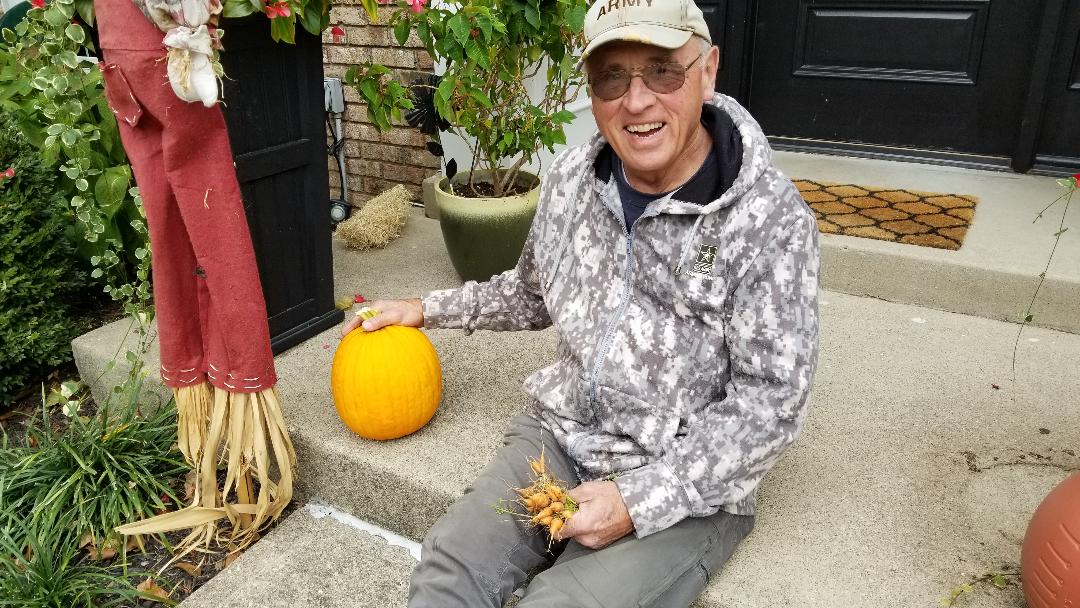
Col. Tom Clegg may be retired from the Army, but he still gets a thrill out of leading people. Clegg, who graduated from Western Carolina University in 1965 with business and history degrees, is the first president of the Division of Advancement’s new Military and Veterans Alumni Society and he’s relishing the opportunity to meet and recruit new members, even by Zoom.
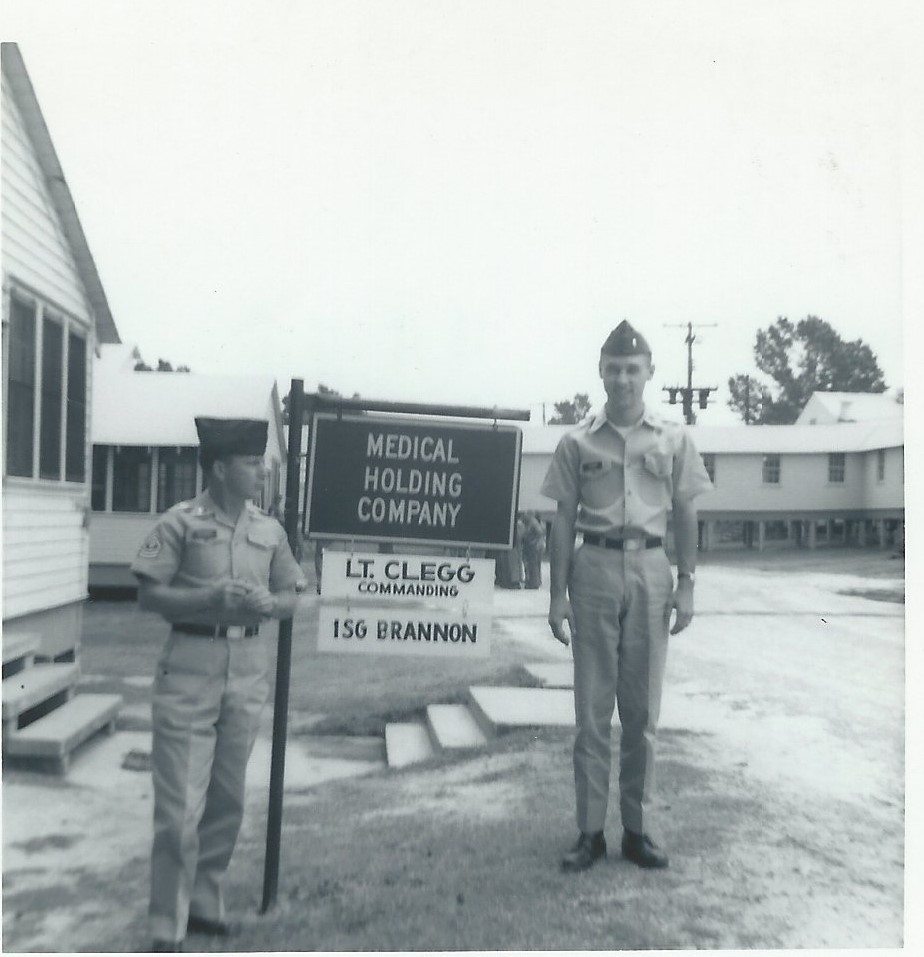
“The first meeting was really cool because we had people from all over the United States and from different years. There was one person older than me, but there were groups all the way up to current students there who were in the military,” said Clegg, a retired health care administrator and July Alumni Spotlight. “The guy in the picture with the Western flag over in Iraq in the desert, he was on the call, too, so we got to meet him.”
The new affinity group, which does not require a financial commitment to join, was established for WCU graduates and students who entered the military during or after college and veterans who came to WCU after serving.
Besides hosting social Zoom meetings, the society also held a virtual tour for members of Shades of Green, an armed forces recreation center resort located on Walt Disney World property near Orlando, Florida. It’s also working to better inform current WCU military students about the Military Gap Scholarship, which was established to provide financial assistance when their military benefits don’t cover all of their educational expenses or their funds are delayed.
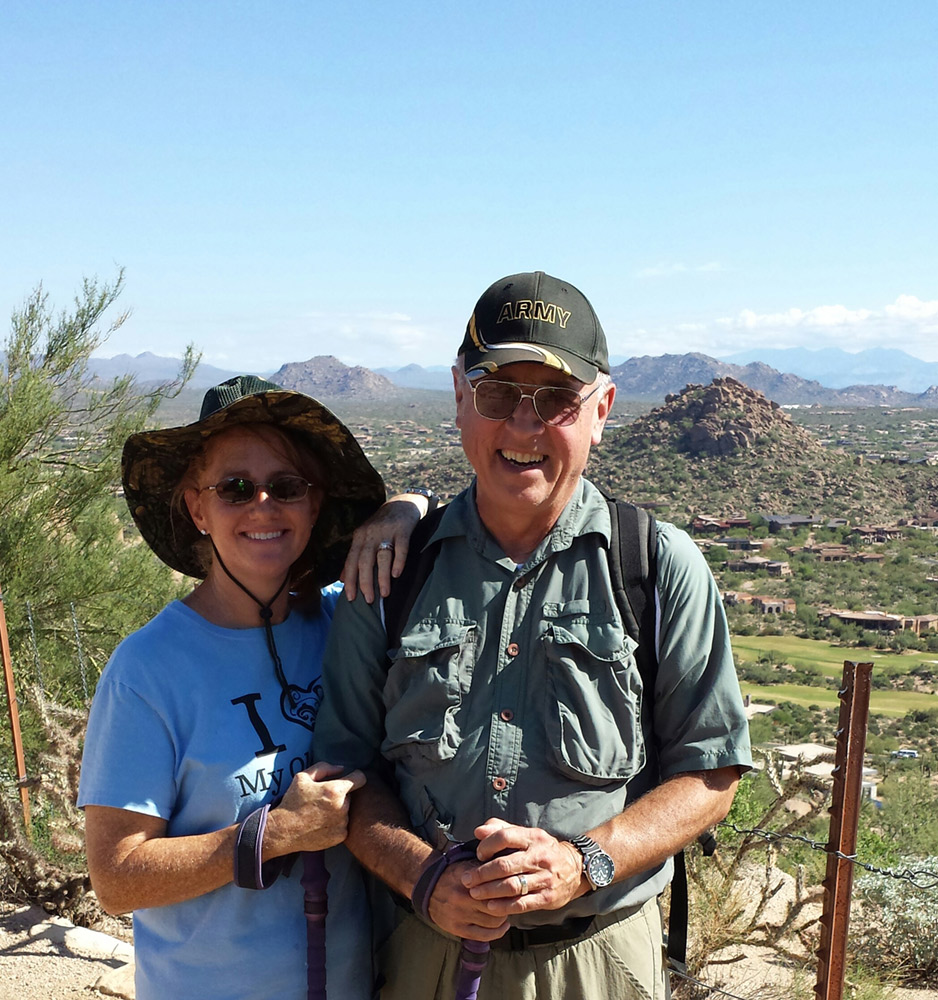
Scholarship support is important to Clegg and his wife, Elizabeth. They and their grandson, Daniel A. Clegg Jr., a 2014 alumnus of WCU, established the Clegg Family Military Legacy Endowed Scholarship for the Arts and Sciences. The scholarship is for any WCU student in the College of Arts and Sciences who is a veteran, dependent or grandchild of a veteran who served honorably on active duty for at least six months.
“Three or four years ago, Beth and I were talking, and she said, ‘What do you think in your life made the biggest differences?’ I said, ‘Probably two things: going to school at Western and being in the military.’ And she said, ‘I wonder how we can pay that back?’ It’s a way to recognize both the school and the military, for what they did for me, and then hopefully somebody else will have a similar experience. We’re hoping to encourage others to participate, too.”
For Clegg – who spent 27 years, three months and 14 days in the Army, but who’s counting? –graduating from WCU may have helped save his life. He was drafted in December 1965 as the United States’ involvement in the Vietnam War was ramping up. He assumed he would “end up in the combat arms as infantry” until he asked an Army recruiter if he had any options. “He said, ‘Only if you’ve got a college degree.’ I said, ‘Ah ha! It’s paying off.’”
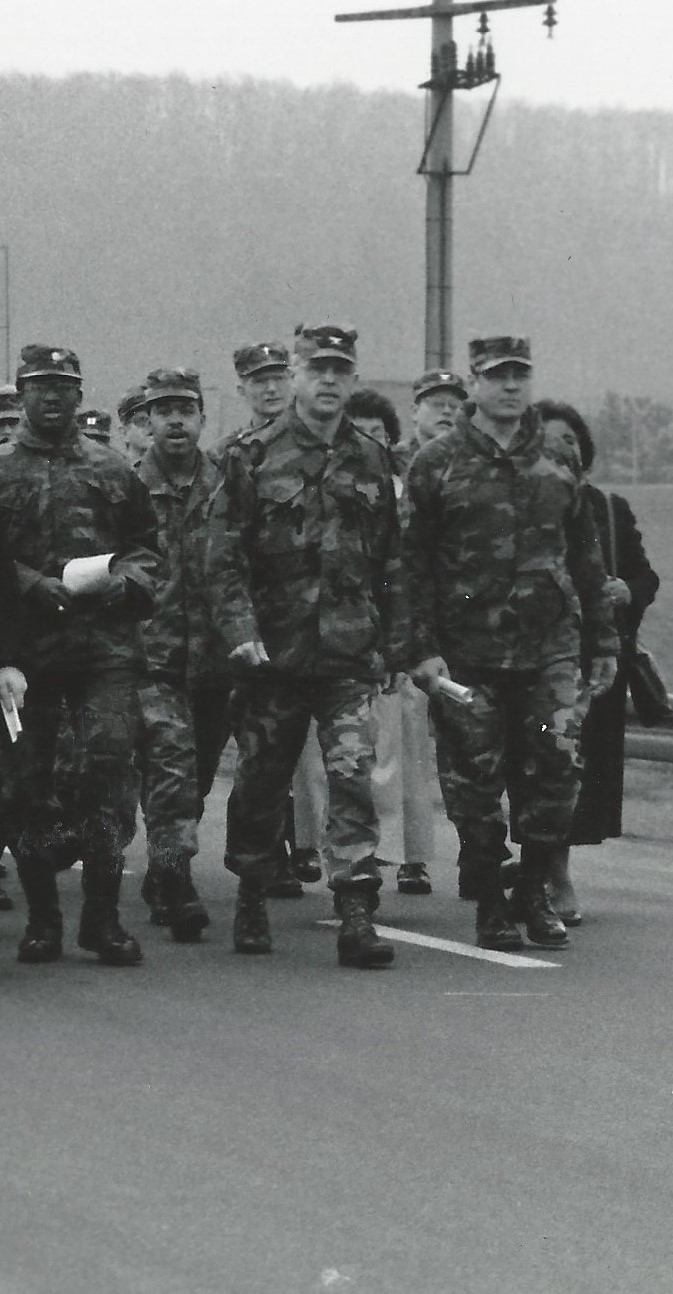
Clegg said the Army was desperate for people with a college degree to work in health care administration and his business degree fit the bill. He filled out the paperwork, got a physical exam and waited. March 14, 1966, he received a telegram telling him to report to active duty the next day in Texas.
Clegg spent his career in the Army medical department’s Medical Service Corps, most
of it in hospital administration. “My last job before I retired, I was the administrator
for the big hospital in Landstuhl, Germany, which takes all the casualties from Iraq,
Iran and Afghanistan and those places. They’re shipped back to Germany and then on
to the states.”
The Army also sent him to graduate school at Baylor University to get his master’s
degree in hospital administration, graduating with a 4.0.
As Clegg watched colleagues retire, he took note of where they landed. What he saw was a similarity between civilian academic medicine institutions, especially teaching hospitals, and organizations in the Army medical department, and that appealed to him. Upon his own retirement from the Army, he landed a job at Emory University, which he eventually left for University of Texas Southwestern in Dallas and then Cincinnati Children’s Hospital Medical Center, where he retired after 15 years.
Clegg is grateful for his administrative training in the military, which he believes puts patient care first and foremost. “Whether it was on the battlefield or whether it was in a hospital, or whatever, you put that patient above everything else. And I’ve found that’s not always true in the civilian sector. A lot of times, depending on what kind of organization you’re in, profit might be the bottom line, might be most important,” he said. “But I was able to make sure, in my case anyway, that the patients always came first and I still think that’s most important in a health care facility.”
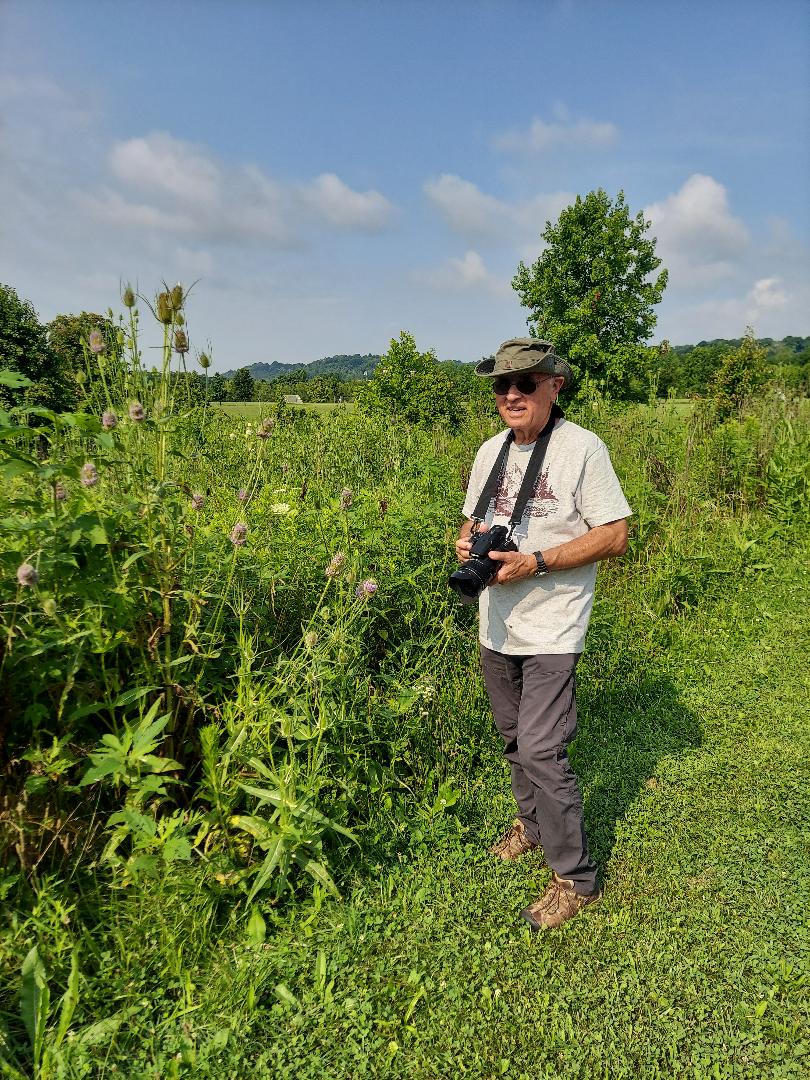
These days Clegg and Elizabeth spend most mornings hiking and birding and taking pictures of new discoveries. They appreciate the peacefulness of the local river and wooded parks. “I counted the other day, I’ve got 9,000 bird pictures. We take them and put them into books with Shutterfly, just for ourselves,” he said. “Since March, we’ve seen over 93 new types of birds we hadn’t identified before and we haven’t left the city.”
Serving as president of WCU’s Military and Veterans Alumni Society has brought Clegg’s life full circle in some ways. He’s channeled his health care experiences into helping veterans and his alma mater. “I loved every minute in the Army. I didn’t particularly like being in Vietnam and Korea and places like that, but the experience and the people I met and the jobs I had were just great. And a lot of it has to do with taking care of patients, I think. You get a lot of satisfaction from that, a lot of feeling of having accomplished something and being fulfilled.”
Learn more about the Military and Veterans Alumni Society or other affinity societies, or contact the Office of Alumni Engagement at alumni@wcu.edu for additional details.
